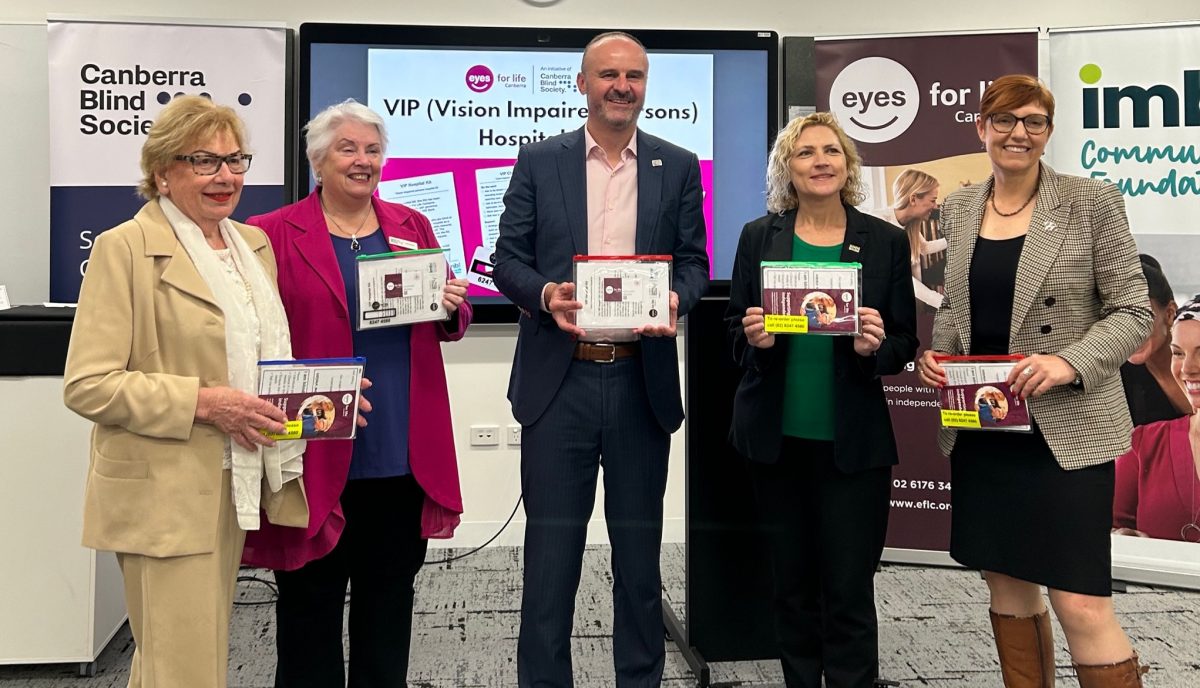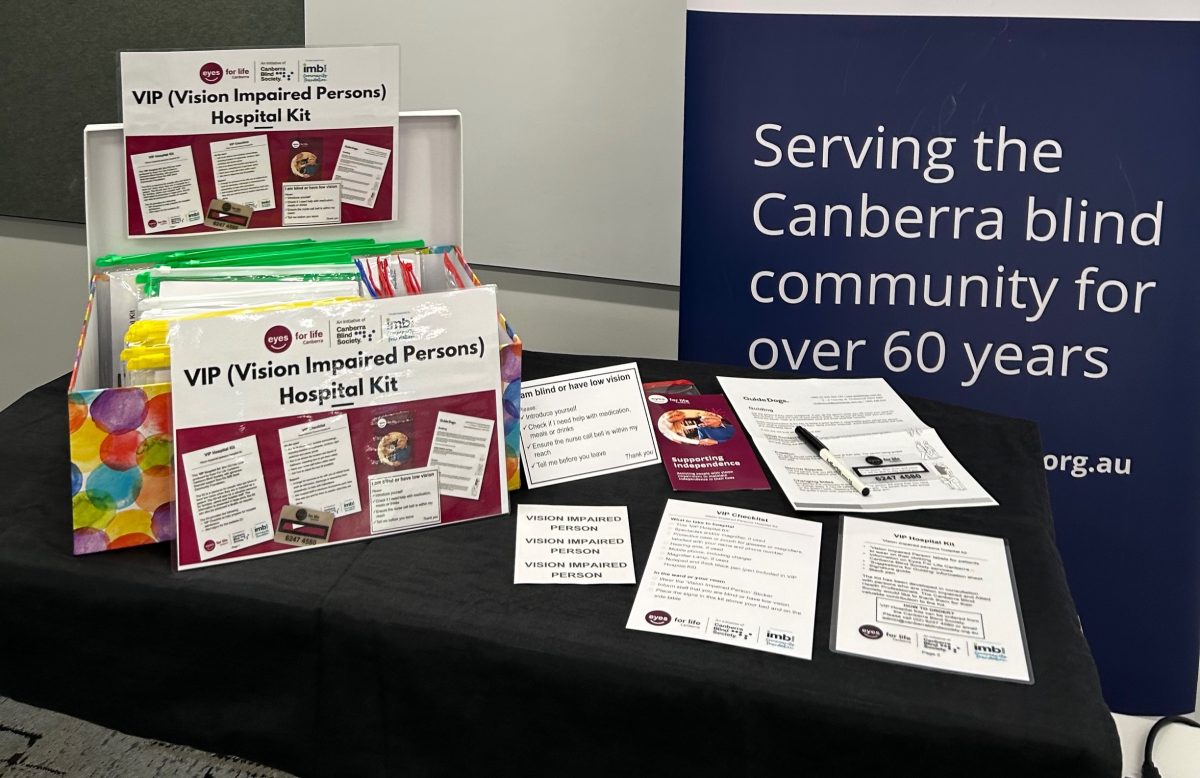
At the launch of the hospital kits from left to right, patron for Canberra Blind Society Margaret Reid, Canberra Blind Society president Heather Fitzpatrick, Chief Minister Andrew Barr, Minister for Disability Emma Davidson and Minister for Health Rachel Stephen-Smith. Photo: Canberra Health Services.
Vision Impaired Persons (VIP) hospital kits have been launched at Canberra Hospital, with plans already in place to expand their use to surrounding regions of NSW in the coming months.
Canberra Blind Society and offshoot Eyes for Life developed the kits, which contain resources for both visually impaired hospital patients and family and staff who care for them.
Blind Society president Heather Fitzpatrick, speaking at the launch of the VIP kits at Canberra Hospital in March, said the kits would have far-reaching benefits.
“They benefit everyone including the nurses, doctors, orderlies, meal delivery people, cleaners, other medical staff and most importantly the patients,” she said.
“This kit aims to reduce the stress that arises from being in an unfamiliar environment and provides the tools needed to help the patients during their hospital stay.”
These tools include clothing labels to alert hospital staff that the patient is visually impaired and bedside signs with specialised instructions for visitors.
Patient-facing resources include a credit card-sized signature guide with a cut-out for signing the person’s name and a large-tipped pen.
An information sheet compiled by Guide Dogs NSW/ACT to help patients navigate their surroundings also forms part of the kit.

The VIP kits are produced in large print as standard but can also be reproduced in Braille upon request. Photo: Canberra Health Services.
Chief Minister Andrew Barr, also speaking at the Canberra launch event, acknowledged the unique challenges faced by visually impaired patients.
“Simple adjustments can dramatically improve the experience for patients with vision impairment and that’s why these kits are so important,” he said.
“It’s also important that we encourage the use of these resources and find more practical ways in which we can continue to support people with vision impairment in the hospital system.”
The kits have been distributed to Canberra Hospital, with Queanbeyan and Yass hospitals next in line to receive up to a total of 100 kits earmarked for the initial distribution phase.
Eyes For Life outreach officer Debra Quinnell said she hoped another 200 to 300 kits would appear in Bowral, Goulburn, Shoalhaven, Nowra and Wollongong before June.
“It’s exciting to be able to get to the hospital kits out. That’s a really good thing and a necessary thing,” she said.
“We’re providing services from the ground level and even as simple as they are, they’re still groundbreaking.”
The kits have been months in the making after the idea was sparked by a discussion between a group of visually impaired people who all had negative hospital experiences.
“They’d be situated in their bed and they can hear footsteps coming in and someone says, ‘Can you just fill this form out?’ and then they’re gone,” Ms Quinnell said.
“[Other examples include] being taken down into the x-ray units and not being told what’s going on and not being able to know where their food is.”
A working party was then established with visually impaired people, a registered nurse and a physiotherapist, which resulted in the development of the kits.
Ms Quinnell said a central objective of designing the resources was making them simple for patients to use and for hospital staff to understand.
“It’s a 15-minute presentation [to train hospital staff] because [the kits are] so easy and simple to use,” she said.
In addition to assisting with the development of the VIP kits, Eyes for Life also offers counselling and occupational therapy to people with low to no vision.
The initiative launched in 2021 as an offshoot of Canberra Blind Society, which has traditionally focussed on social participation programs for people with low to no vision.












